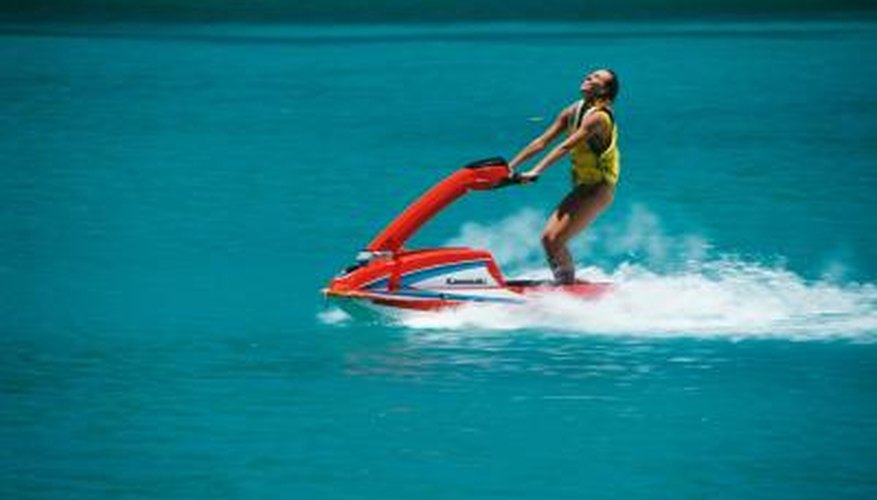
Keeping your Sea-Doo watercraft properly maintained is key to your enjoyment and the vehicle's longevity. Because it has a gas-powered engine, an important part of maintenance involves the engine oil. Although the owner's manual recommends that you take your Sea-Doo to the dealership for servicing, you can change the oil and filter yourself. Purchase the correct engine oil so that you do not damage the engine or invalidate your manufacturer's warranty.
Maintain Proper Fluid Levels
Check your oil level frequently, and refill if necessary. Do not overfill. Operating the engine with an improper level may severely damage the engine.
Change Your Oil Every 100 Hours Or Every Year
The owner's manual includes a detailed maintenance schedule for every aspect of your jet ski. The manual recommends that you change your engine oil after 100 hours of use, or after one year---whichever comes first.
Models with the 155 Engine
The owner's manual strongly recommends that you use XPS Synthetic Blend Oil (Summer Grade; P/N 293 600 121). If XPS engine oil is unavailable, then use a 5W40 or 10W40 engine oil meeting the requirements for API service classification SM, SL or SJ. The API service classification certification is on the oil container. Do not use any oil that does not have one of these API service classifications.
Models with the 215 and 255 Engines
As with the 155 Engine, the owner's manual strongly recommends that you use XPS Synthetic Blend Oil (Summer Grade; P/N 293 600 121) for both the 215 and 255 Engines. These engines have been developed using XPS oil, and using any other brand will not be covered under your warranty. If, however, XPS oil is unavailable, use 10W40 mineral engine oil compatible with wet clutches. Take care that the 10W40 mineral engine oil does not have an SM API service classification, as it contains additives can damage your engine, cause friction and invalidate your warranty.
References
Writer Bio
Jimmy Rafter is a published academic writer, having written books, journal articles, reviews and newspaper articles for over 20 years. He holds two master's degrees (one in theology) as well as a Doctor of Literature. As an English professor, he has over 10 years of experience teaching students how to write well.



